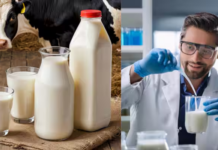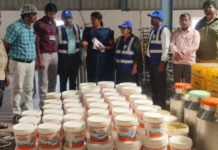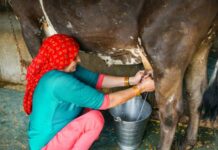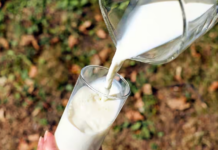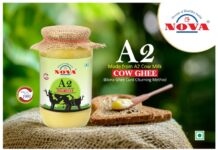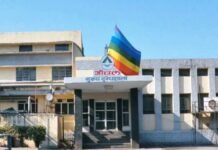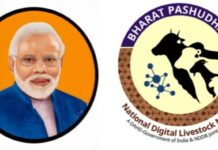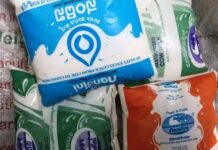The Karnataka govt declared that only farmers who have a fodder ration booklet will be given subsidised fodder, a lifeline for the dairy farmers battling a crippling shortage in cattle food.
In the hinterlands of Karnataka that is battling a third successive drought year and increasingly parched lands, farmers have a new worry: Aadhaar.
The state government has declared that only farmers who have a fodder ration booklet will be given subsidised fodder, a lifeline for tens of thousands of people in a region battling a crippling shortage in cattle food.
But to be issued the booklet, where details of rationed fodder is entered, one needs to have the 12-digit biometric identity number that has run into a storm of criticism across the nation.
“The local veterinary doctor certifies the number of cattle each farmer owns and we are then given a booklet that contains these details,” Narayanappa, an octogenarian farmer in the drought-ravaged Kolar district, said. On producing the booklets, farmers are eligible to buy 5kg of fodder per animal per day at Rs 2 per kg at makeshift fodder banks set up across the district.
But often that’s not enough. Demand for fodder outstrips supply by more than 80 times and on most occasions Narayanappa gets half the daily dose of fodder that he needs, that too only thrice a week. All his five cows are starving.
Chennakeshavaiah, deputy director of animal husbandry in the district, said Aadhaar authentication was made mandatory to check malpractice. “We had to authenticate the booklets and decided that Aadhaar was the best way.”
The biometric identification project has run into controversy with mounting data breaches and complaints of malfunctioning. But the government has continued to expand its usage, even making it mandatory for filing income tax and PAN.
The Supreme Court has repeatedly asked the government to not make Aadhaar mandatory for welfare schemes – this order, activists say, has been violated in Karnataka by making the 12-digit number necessary for subsidised fodder.
“The Supreme Court has unambiguously stated that Aadhaar cannot be made mandatory for any scheme till the Constitution Bench disposes off the petitions challenging Aadhaar,” said advocate Clifton Rosario.
A sweeping change in crop pattern and drying lakes and rivers has sent groundwater levels plunging, and cattle starving across the state – hurting the profitable dairy industry. Many farmers are hanging onto the subsidised fodder scheme for sustenance.
Other farmers say there was rampant corruption in the distribution of fodder, despite the Aadhaar authentication. “Each taluk has only one fodder bank and those who stay in villages near these banks have been able to corner most of the fodder that is sold,” Ram Reddy, who own 10 heads of cattle in Belamaranahalli village, said. “As it is, fodder is only available about three days a week,” he said.
The district has around 276,000 heads of cattle, of which around 165,000 are milch animals, Chennakeshavaiah said. Other attempts to help mitigate the situation, too, had fallen short, farmers said. The state government had built goshalas (shelters) across the state as a temporary measure to help dairy farmers. In Kolar, the goshala had to be closed because farmers did not want it.
“The goshala was not popular with farmers because we don’t want to leave our cattle there,” Reddy said.
KA Eeranna, another farmer in Belamaranahalli said, farmers demanded that the goshala be closed and the district administrations sell fodder directly to farmers instead. “We wanted access to fodder and not a shelter for the cattle,”



